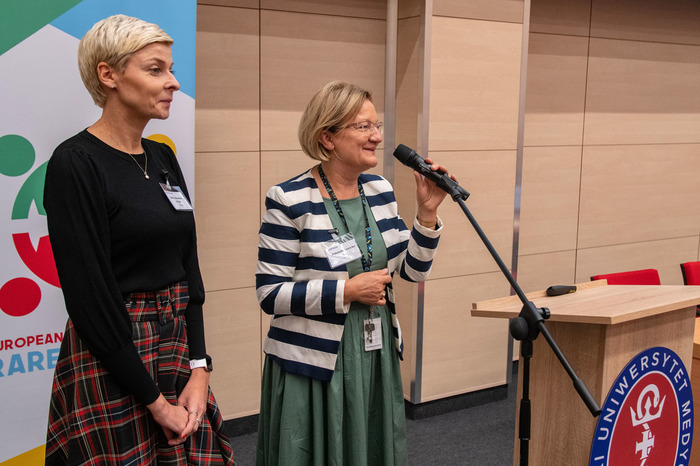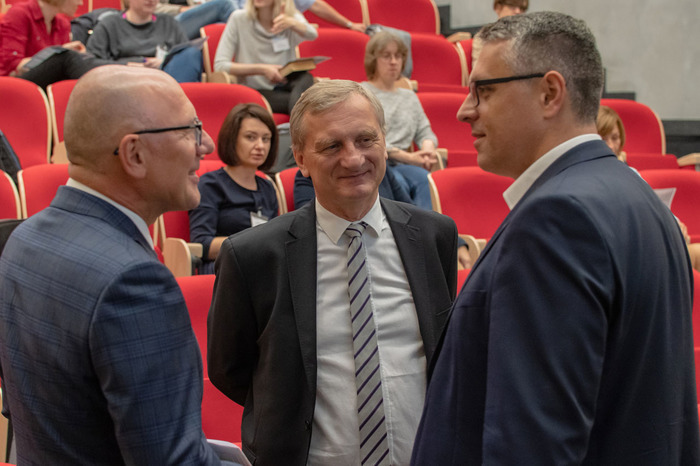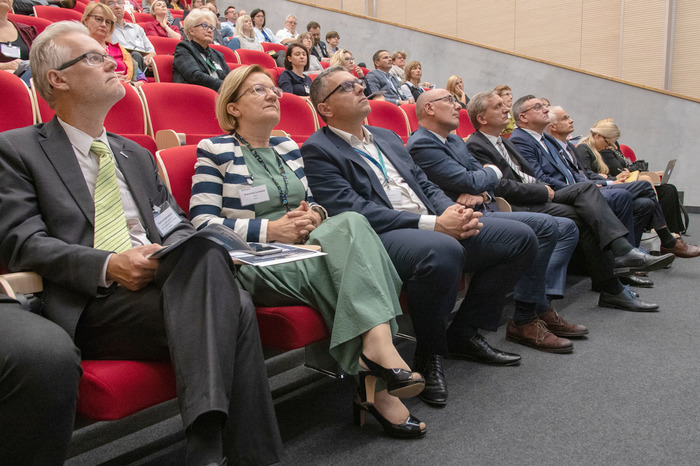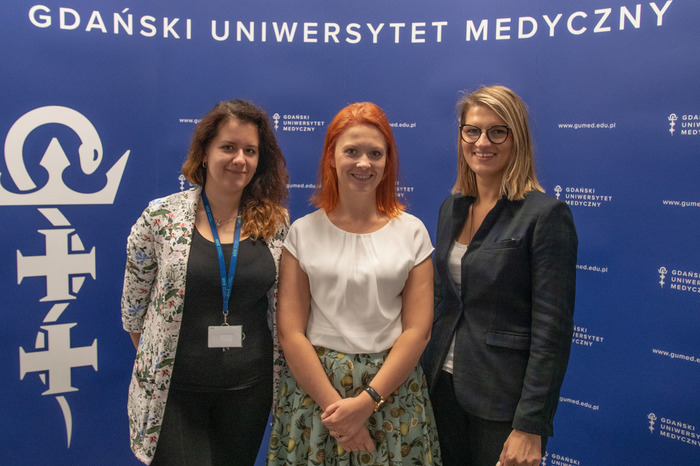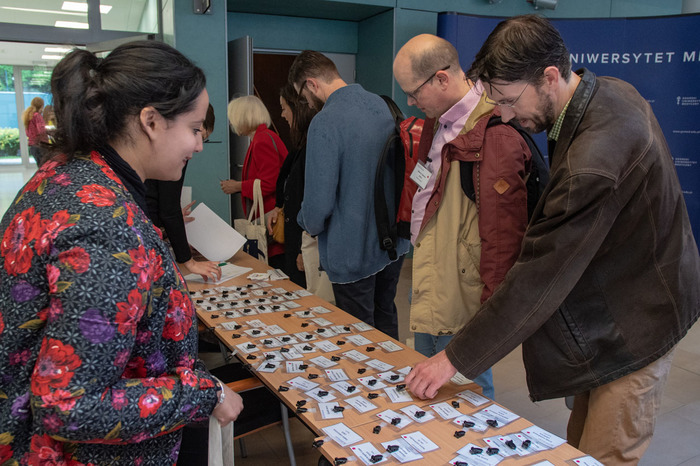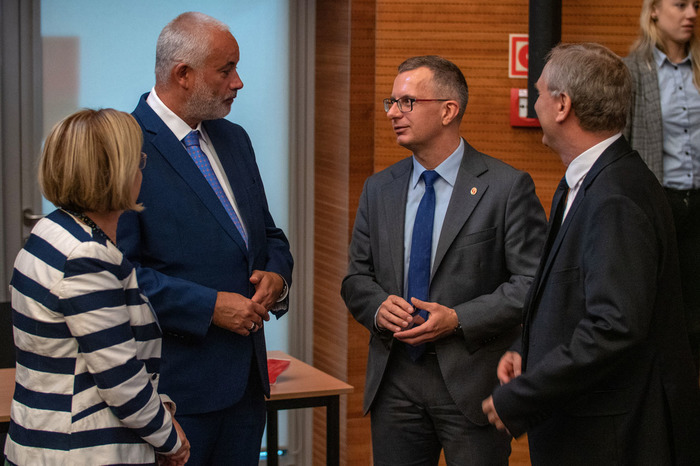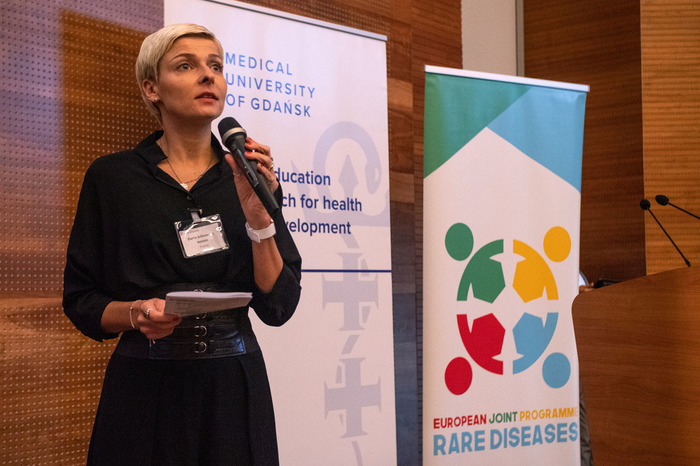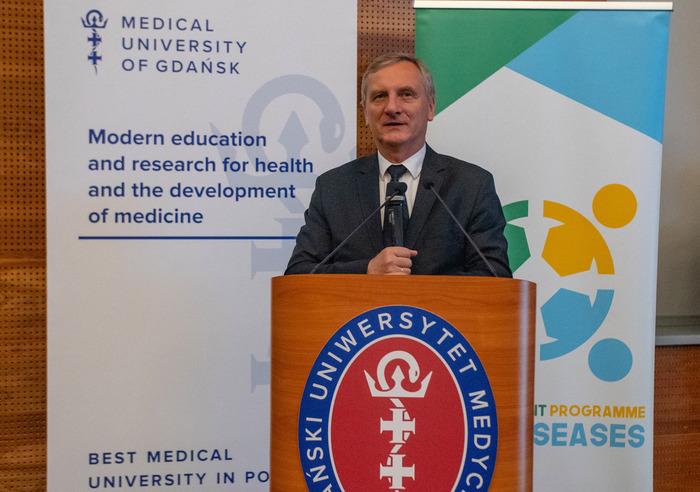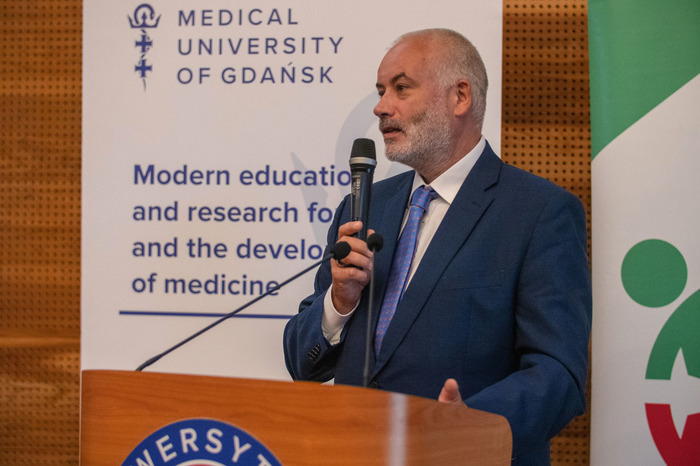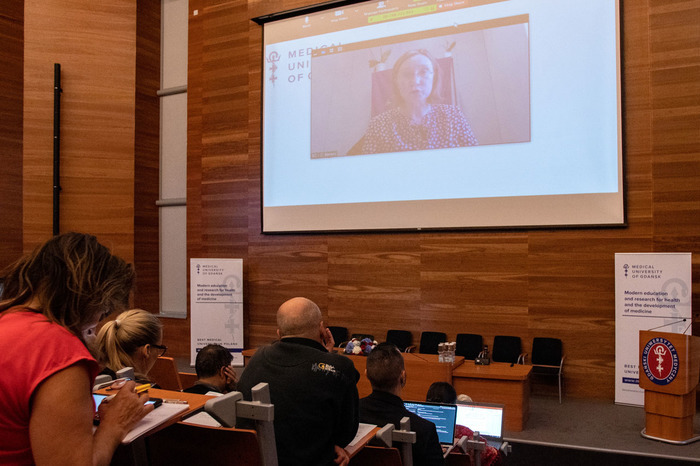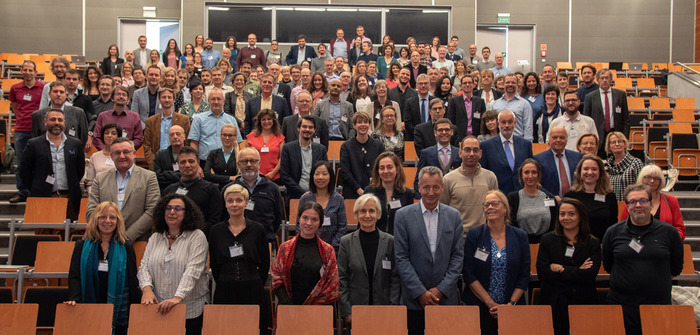They talked about rare diseases
23.09.2019

Over 200 participants of the European Joint Programme on Rare Diseases (EJP RD) met on September 16th-20th at the Invasive and Non-Invasive Medicine Centre of the Medical University of Gdańsk. Specialists, coordinators of reference centres, organizations dealing with rare diseases (ORPHANET, ECRIN, BBMRI-ERIC, RD-CONNECT, E-Rare, ELIXIR, c4c), including representatives of patient organizations (EURORDIS) got together to approve plans and expenses for another year and takj in the existing 20 working groups.
On September 16th a satellite meeting was held for specialists dealing with rare diseases in Poland and neighboring countries, during which the structure and plans for the next years of the EJPRD programme and the situation of this group of patients in the CEE countries were presented. The guests were greeted by Prof. Jacek Bigda, Vice-Rector for Education and Development of the Medical University of Gdańsk, plenipotentiary of the Minister of Health for Rare Diseases Zbigniew Król, Ph.D., Prof. Piotr Czauderna from the Department of Surgery and Urology of Children and Youth, coordinator of the Health Protection Department at the National Development Council and Daria Julkowska, the coordinator of EJP RD.
The main conference meeting on September 17th was opened by the MUG Rector, Prof. Marcin Gruchała, plenipotentiary of the Minister of Health for Rare Diseases Zbigniew Król, Ph.D., Daria Julkowska, the coordinator of EJP RD Prof. Piotr Czauderna from the Department of Surgery and Urology of Children and Youth, coordinator of the Health Protection Department at the National Development Council.
The European Union invests 100 million EUR in the development of research on rare diseases. The research conducted by the European Joint Programme on Rare Diseases (EJP RD) links 130 institutions from 35 countries, including 27 EU member states, 7 associated countries and Canada. Furthermore, research funding institutions, universities, research organizations as well as hospitals and patient organizations are strongly involved as well. Four Polish participate in the programme: the Medical University of Gdańsk, the Medical University of Warsaw, the “Memorial-Child Health Centre” Institute and the National Centre for Research and Development.
The goal of the programme is to combine distributed activities of many wordwide institutions and centres in order to expedite and coordinate scientific activities, patient care and emerging innovations in treatment. The primary aim is to accelerate research on treatment and care the group of nearly 38 million patients in Europe which is discriminated by medical care systems and research sponsors. The European Reference Centers for Rare Diseases (ERN), established in 2018, is one of the most important shareholders of the programme. To date, 21 Polish centres have been qualified to the European network of the progamme, including 4 from Gdańsk (the MUG): children’s nephrology and nephrology centres (Prof. Aleksandra Żurowska, Prof. Alicja Dębska-Ślizień), and children’s urology centre (Andrzej Gołebiowski, Ph.D., D.Sc.) and, childhood cancer centre (Prof. Piotr Czauderna, Prof. Ewa Bień).
Being highly involved in the care of the patients with rare diseases, the MUG established the Centre for Rare Diseases. It aims at conjoining the activities of reference research centres. Prof. Aleksandra Żurowska is its coordinator. The University Clinical Centre, the MUG hospital appointed its counterpart, the Rare Diseases Centre, coordinated by Jolanta Wierzba, Ph.D., D.Sc.
More at www.ejprarediseases.org.
Archives
- Academic Year 2024/2025
- Academic Year 2023/2024
- Academic Year 2022/2023
- Academic Year 2021/2022
- Academic Year 2020/2021
- Academic Year 2019/2020
- Academic Year 2018/2019
- Academic Year 2017/2018
- Academic Year 2016/2017
- Academic Year 2015/2016
- Academic Year 2014/2015
- Academic Year 2013/2014
- Academic Year 2012/2013


